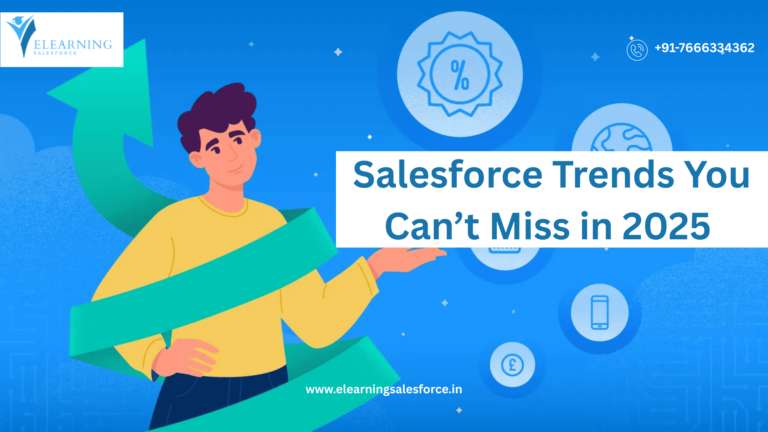After learning about Salesforce—possibly from a friend or on LinkedIn—you’re wondering if you can work there without any prior experience.
The quick response? Indeed, you can.
The lengthy response? Let’s navigate it together.
Why Salesforce? A Quick Snapshot
Thousands of businesses worldwide utilize Salesforce, the top CRM platform in the world, to manage their client interactions. Salesforce is used by Fortune 500 companies and startups alike.
By 2026, more than 9 million new Salesforce jobs are anticipated to be generated worldwide, based on current industry patterns. For anyone who is eager to learn, that is a genuine and expanding opportunity, not simply hype.
Don’t worry if you’re new; you’re in the right place to get started.
Step 1: Understand the Ecosystem (In Simple Terms)
Salesforce isn’t just one thing—it’s a cloud-based universe of tools and platforms. Here’s a quick breakdown:
- Salesforce Admin – Think of this role as the “fixer.” They customize Salesforce for businesses.
- Salesforce Developer—They write the code (mostly in Apex and Lightning Web Components).
- Salesforce Consultants—These are the problem-solvers who bridge the business and technical sides.
- Marketing Cloud/Service Cloud/Commerce Cloud Experts— These specialize in specific areas like email marketing or customer service.
Step 2: Start Learning—For Free!
You don’t need a fancy degree or expensive course to begin.
Start with Trailhead—Salesforce’s Free Learning Platform
Trailhead is your best friend as a beginner. It offers step-by-step interactive learning modules, badges, and even projects.
Search terms to begin with:
- “Admin Beginner”
- “CRM Basics”
- “Data Management in Salesforce”
Step 3: Create a Real Experience (Even Without a Job)
You may be thinking, “But I don’t have any real projects to show.”
Here’s how you build your own experience:
- Volunteer: Offer to help a local NGO or small business set up Salesforce (even if it’s just basic tasks).
- Simulate Projects: Use Trailhead’s Playground to build your own sample projects (e.g., a simple lead management app).
- Document Everything: Keep screenshots, write about what you did, and post your progress on LinkedIn. This builds a portfolio.
Step 4: Earn Your First Certification
Certifications build credibility. The most recommended one to begin with is:
Salesforce Certified Administrator
It’s like your official badge to say, “Hey, I know my stuff.”
Even if you haven’t worked in a company yet, this certification can set you apart from other freshers.
Step 5: Network Like It’s Your Job
Your network is your net worth, especially when you’re starting from zero.
Here’s what you can do:
- Join Salesforce LinkedIn groups
- Follow hashtags like #SalesforceJobs and #TrailblazerCommunity
- Attend free webinars and local events
- Engage in Salesforce Community Groups

Step 6: Apply and Don’t Fear Rejection
Start with roles like
- Salesforce Intern
- Salesforce Admin Trainee
- Junior CRM Analyst
- Support Analyst (with Salesforce exposure)
Write a simple but targeted resume highlighting:
- Your Trailhead badges
- Volunteer work or simulated projects
- Certification (even if it’s in progress)
- Communication & problem-solving skills
Motivational Note:
Rejection is redirection. Every job you don’t get teaches you how to get better for the next.
Bonus: Learn Soft Skills That Matter
Besides Salesforce knowledge, companies love:
- Communication skills
- Logical thinking
- Time management
- Curiosity and a growth mindset
If you’re coachable, you’re hireable.
Ready to Start?
You’ve got what it takes. It’s not about where you start—it’s about how committed you are to finishing strong.
Here’s your action plan:
- Sign up on Trailhead and begin the Admin Beginner module.
- Simulate a project on Playground.
- Post about your learning on LinkedIn.
- Join a Salesforce community group.
- Bookmark this blog and keep checking back for advanced resources.
Final Thought
You don’t need experience—you need commitment.
Start small. Stay consistent. And one day, you’ll look back and smile at how far you’ve come.
You may be like this:
How Developers Can Leverage Salesforce Inspector for Efficient Debugging
What Does a Salesforce Developer Do? A Beginner’s Guide to a Thriving Career




